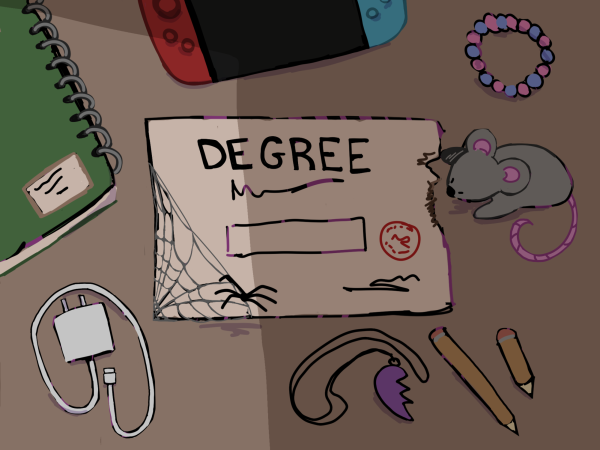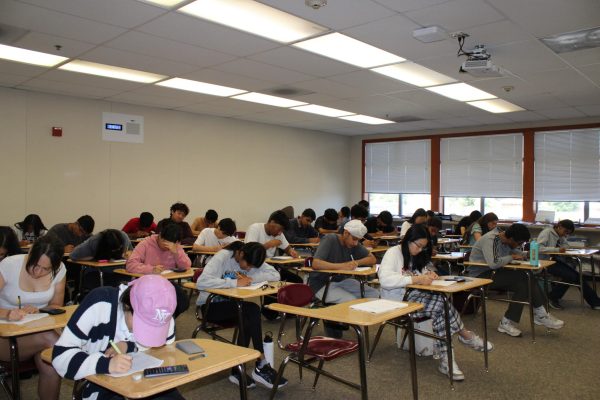Digital Advanced Placement exams have too many flaws
This year, the College Board finally came out of the stone age and made seven of their most popular AP exams available to take online, including all AP English and three AP history tests.
Cal High adopted this format for three of these exams plus five others, but it might want to reconsider this in the future.
Digital testing was first developed in 2020 amidst the pandemic when in-person testing wasn’t a viable option. Since then, it has gone largely unused in favor of traditional in-person AP testing. That is, at least, until this year, when both digital and paper tests were offered to students.
Students across campus cheered and celebrated this decision. No longer would they have to manually write dozens of essays, hands cramping more and more every second.
But if there’s anything the 2023 AP exam season has shown, it’s that sometimes, the old way with paper and pencil really is the best way.
Digital AP exams utilize the app Bluebook, which is a secure test browser pre-installed on school-issued chromebooks. These tests are, in many ways, the same as paper tests. They’re administered at the same time, are the same length, and have the same time restrictions.
There is one key difference between digital and paper tests, however: paper tests can’t crash.
Online AP tests have encountered a number of problems, including but not limited to app malfunctions, difficulties starting the test, and locking students out of their exams.
The AP English Literature and Composition exam was postponed at Cal because of technical difficulties. Students who were set to take AP Lit on its original date were then forced to wait two weeks for the makeup date, which meant more studying, more suffering, and more stress for saddened students. They also had to take the paper version of the test.
AP Chinese barred thousands of students from logging in nationwide. AP United States History (APUSH) almost met the same fate, but a last-minute solution was found.
These crashes demonstrate one thing about the College Board: their AP testing software was unprepared to handle thousands of students taking these tests all at once.
Can you imagine? A billion-dollar corporation, swindling high-schoolers into paying for AP tests, can’t develop a software strong enough to allow for those very students to take said exams.
Software crashes aside, there are plenty more problems that come with digital AP testing. One main one is the lack of a physical booklet for students to annotate.
With paper tests, marking up the sources and writing notes was no problem, but the same can’t be said for online exams. A highlight feature is provided on the digital test, but other helpful notes or annotations are impossible without a paper copy of the essay prompt or sources. While blank scratch paper is provided, it doesn’t compare to being able to write directly on the prompt.
Not only does the digital format have these drawbacks, but for certain exams the 10-minute break given to students in between sections barely qualified as a break.
For APUSH, the solution to the aforementioned software issue was to have students log into the exam in waves. Those whose last name started with A would log in first, then B, and so on. The problem with this solution is that each student started at a different time, meaning that some students would go on break before others.
So, if someone started five minutes later than the rest of the room, their test would still be active while others were on break. This meant that not all students taking digital tests got a true break. For the most part, students could either sit at their desk or use the restroom.
Plus, no talking with others was permitted for those with digital tests since not everyone was on “break” at the same time.
While the College Board has finally caught up with the modern era, it seems like not much thought was put into how digital AP tests could be properly administered.
For all students put up with the College Board’s mistakes, maybe AP testing should stand for Advanced Patience from now on, a more appropriate name for the new antics from every high school student’s favorite company.

Senior Shivani Phadnis is a reporter for The Californian. This is her second year of newspaper and she is interested in writing and storytelling. When...

